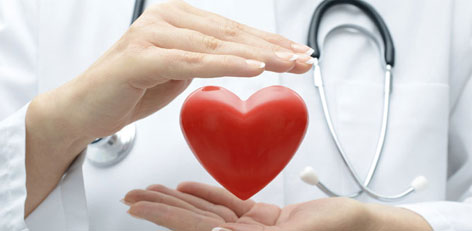
More about thyroid disorders
Posted on: 05/Jul/2016 9:56:43 AM

Many people have thyroid conditions that go unnoticed for long because because people just blame their state on a general sense of being tired or stressed. It is estimated that about 200 million people suffer from thyroid disorders worldwide and amongst those 42 million are in India.
A senior executive says, There is a significant need for reaching out to the masses and making people aware of the causes, symptoms, treatment and importance of testing for thyroid disorders.
A study found that women had a higher percentage of abnormality as compared to men. It was measure at 26 per cent compared to 24 per cent. The study also found that the Eastern Zone in India had the highest percentage of abnormality at 27 per cent, followed by North Zone with 26 per cent. Among the zones, Southern and Western India showed lower percentages of abnormality at 22 per cent each.
A senior doctor of Diabetology and Endocrinology says, Thyroid is an auto-immune disorder. In the past, thyroid, then known as iodine deficiency thyroid disorder, was prevalent. However, with the iodisation of salt in contemporary times, this form of thyroid has been obliterated. The current form of thyroid cannot be prevented by medication. There is no prescribed care to be followed in case one contracts thyroid. One needs to take regular medication and undergo periodical testing under the expert guidance of a medical professional.
So how do you know if your thyroid is fine or not? The thyroid gland is situated in the neck and produces hormones that are needed for metabolism as well as brain activity. A simple blood test can be done to assess thyroid levels. The symptoms to look for are:
- You feel tired even after sleeping for 8-9 hours
- You are struggling hard to lose weight or gain weight
- You feel depressed, stressed and suffer from acute mood swings
- You are facing hormonal imbalances such as irregular periods, low sex drive
- You suffer from muscle or joint pain
- You have dry skin and brittle nails
- You are experiencing heavy hair loss
- You are mostly constipated
- You snore or have neck swelling
- You have noticed increased blood pressure
The common symptoms of hypothyroidism are weight gain, lethargy, dry skin, heavy menstrual bleeding, depression. The common symptoms of hyperthyroidism are weight loss, insomnia, palpitations, heat intolerance, tremors, awry menstrual cycle, light or infrequent menstrual cycle.
Unfortunately, once you are diagnosed with thyroid disorder, it lasts for your lifetime. Reasons for the disorder may be hormonal changes like during pregnancy or menopause. Other reasons could be diabetes or another autoimmune disorder or a family history of thyroid disorder. Say doctors, Thyroid patients require life-long monitoring. Patients who believe they have been completely cured of their thyroid illness should discuss the need for follow-up with their treating physicians.
Once diagnosed, patients should also look into their diets. Says a dietician, People with hypothyroidism will need some different nutritious food when compared to people with hyperthyroidism.
Foods to be eaten by those diagnosed with hypothyryroidism include iodine rich foods like iodised salt, seafood etc, food rich in antioxidants and vitamin C such as tomatoes, cherries squash, bell peppers etc, Skimmed dairy products, Food rich in vitamin B and iron like whole grains, fresh and sea vegetables, skinless chicken, beans and nuts, dairy product, berries, fish, egg and mushrooms. Foods that need to be avoided are Soya products and soybeans, raw foods like cabbage, broccoli, mustard green, cauliflower, pear, peaches, strawberries, radishes, spinach, turnip, peanuts, and millets.
In the case of hyperthyroidism, the foods to be eaten are olive oil, honey, Apricots, walnuts, whole wheat pasta and brown breads, vegetables and grains. Foods to be avoided include soft drinks, food containing concentrated sweeteners, sugar, sugarcane, corn syrup and chocolate, Alcohol and caffeine, pasta and white bread, red meat mutton, pork, antibiotics.







